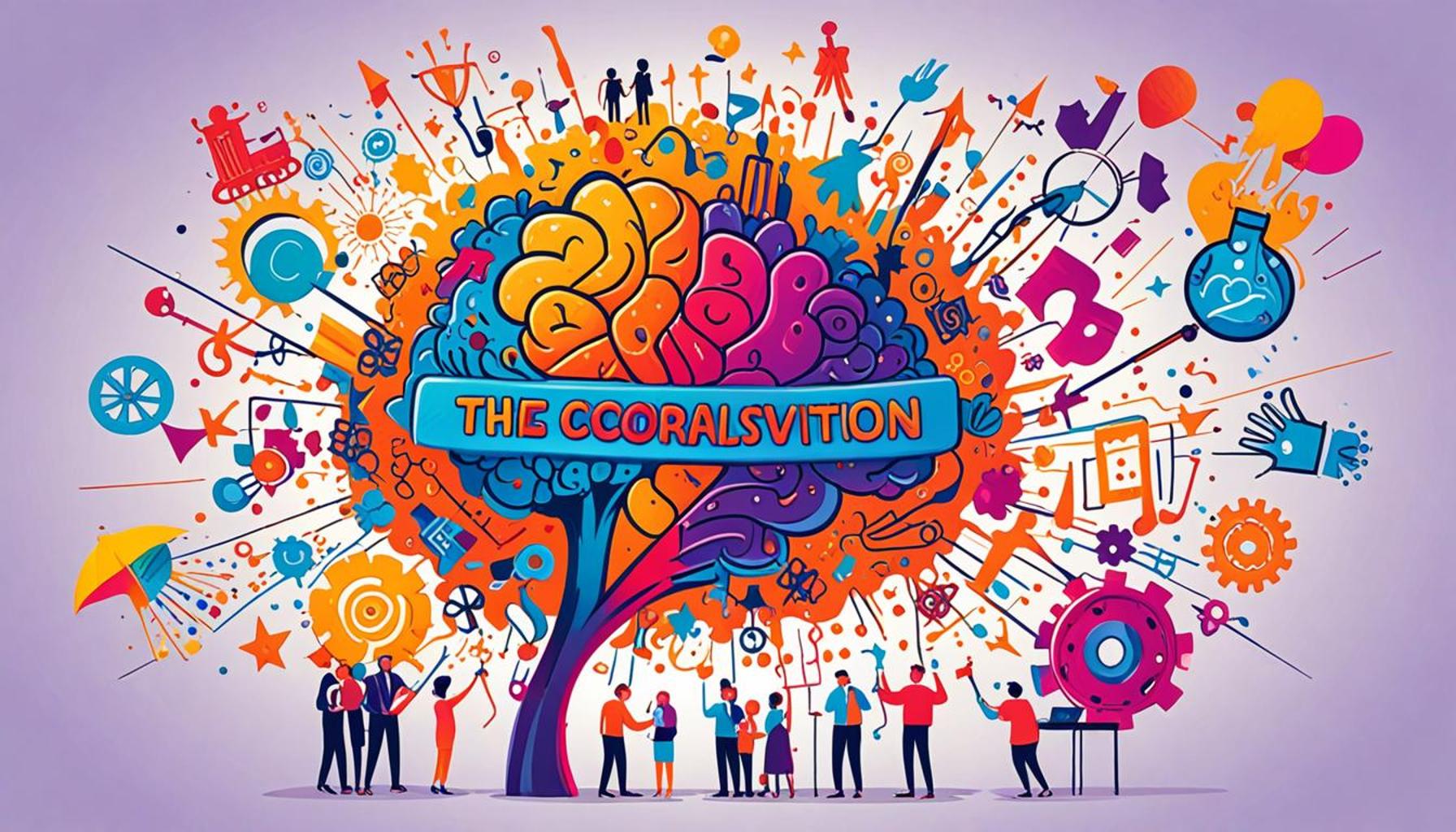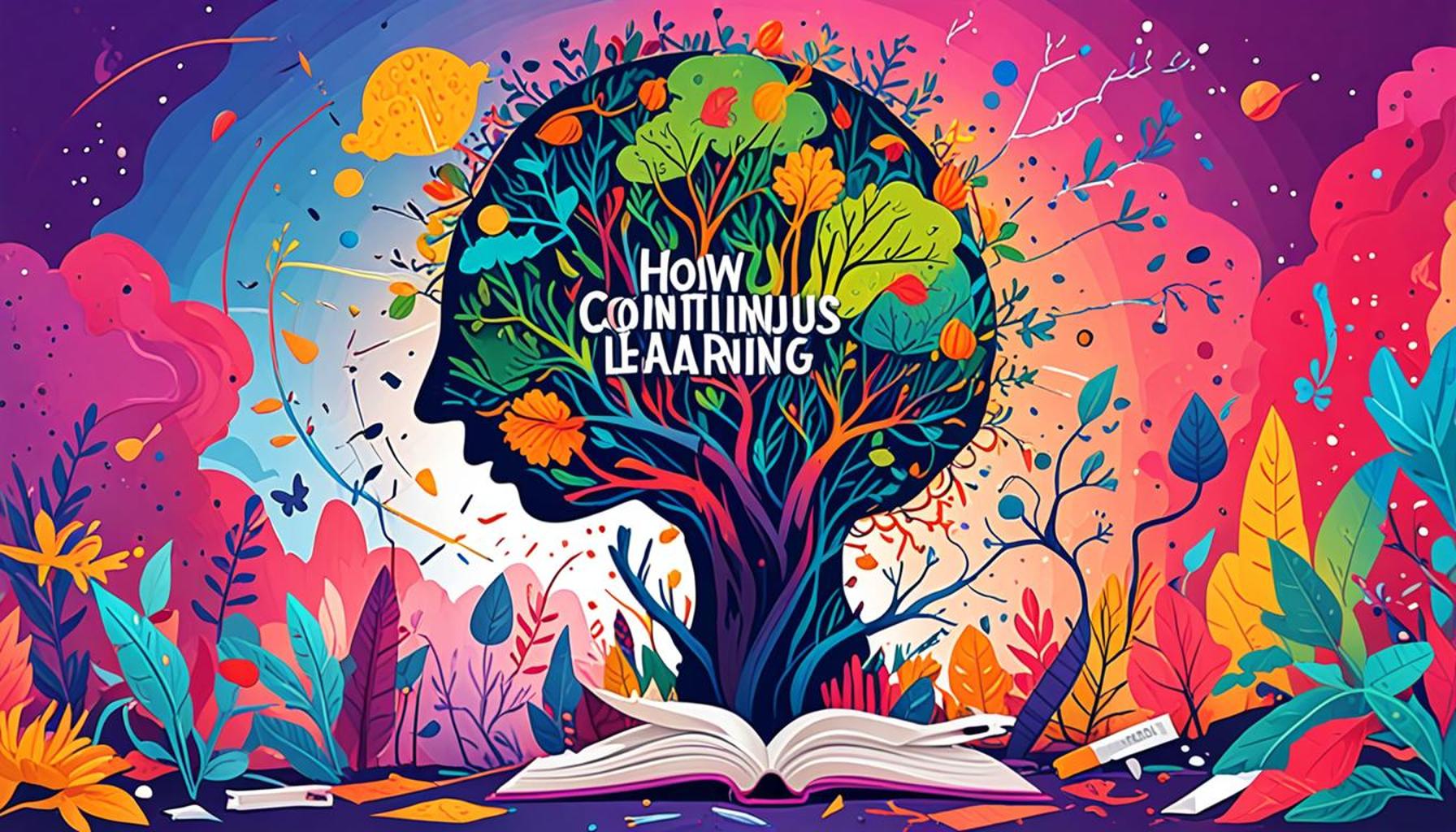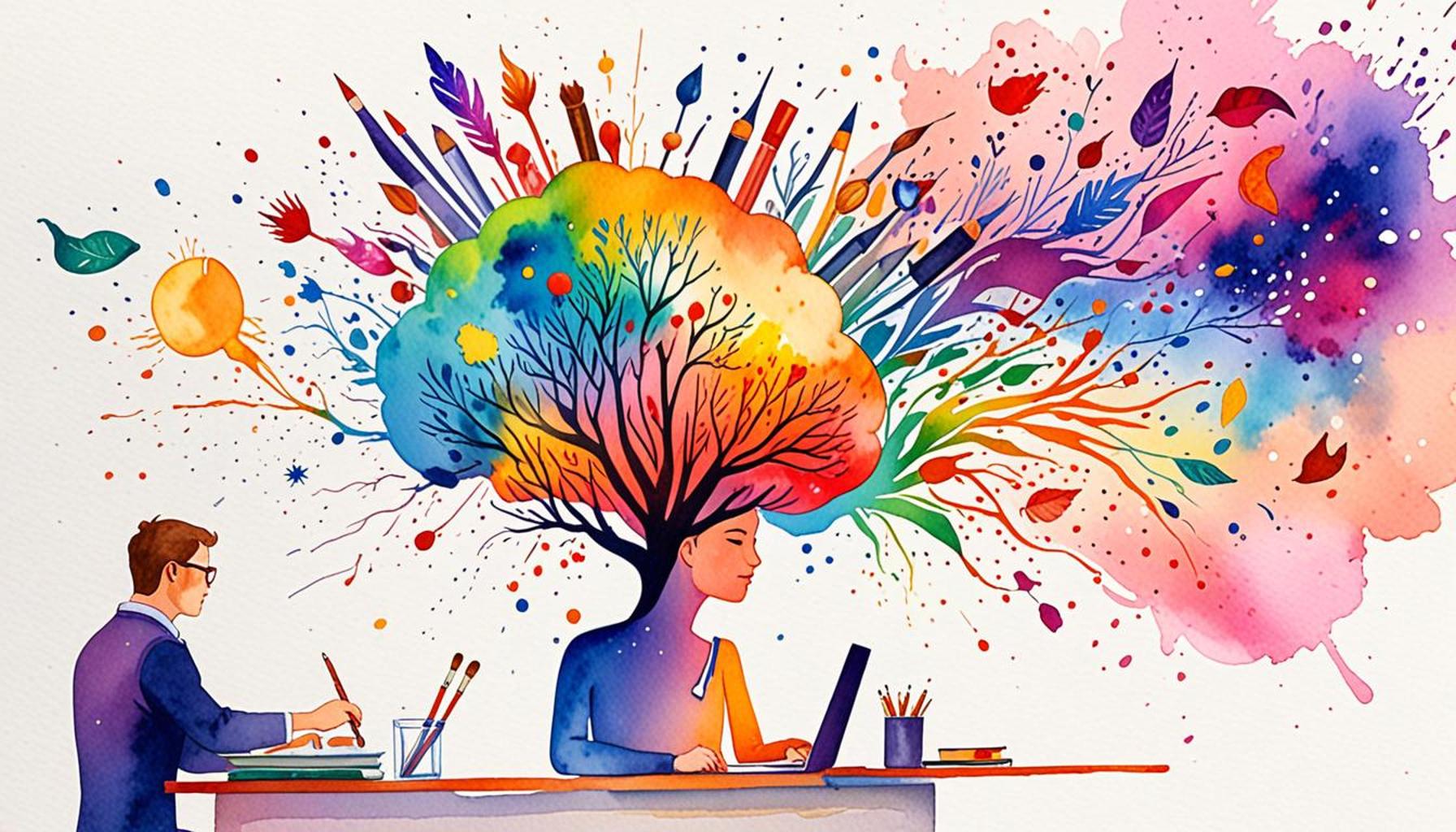The Role of Continuous Learning in Promoting Social Inclusion and Diversity in Work Environments

The Role of Continuous Learning in Promoting Social Inclusion
In today’s rapidly evolving work landscape, continuous learning has emerged as a critical element for fostering social inclusion and diversity. Organizations that prioritize ongoing education encourage employees to embrace differences and enhance mutual understanding. In rapidly changing environments, skills can quickly become outdated, making lifelong learning essential for both personal and professional growth. The impact of continuous learning extends far beyond individual development; it acts as a powerful catalyst for creating inclusive workplaces where diverse talents can flourish.
Why is continuous learning pivotal in promoting social inclusion? Here are a few key reasons:
- Enhances skills: Regular training ensures that all employees, regardless of their background, can contribute effectively to the organization’s goals. In Nigeria, for instance, organizations that provide workshops focused on skills like digital literacy or project management can empower employees from various educational backgrounds to adapt and excel in their roles.
- Fosters understanding: Learning about different cultures and perspectives enhances empathy among team members. For example, implementing cultural competence training can help employees appreciate the diverse traditions, languages, and values that their colleagues bring to the workplace, bridging gaps and fostering collaboration.
- Encourages innovation: A diverse workforce brings unique ideas, driving creativity and problem-solving. Continuous learning initiatives such as brainstorming sessions or mentorship programs allow employees to share innovative ideas, irrespective of their rank or background, leading to ground-breaking solutions that can benefit the company as a whole.
In Nigeria, a country rich in cultural diversity, the need for inclusive workplaces is paramount. With over 250 ethnic groups and numerous languages, fostering an inclusive environment is not just a corporate responsibility; it is essential for the nation’s socio-economic growth. Investing in continuous education not only aligns with corporate goals but also supports national development by:
- Creating equitable job opportunities through targeted training programs that level the playing field for underrepresented communities.
- Encouraging participation from marginalized groups by offering scholarships or subsidized training programs that eliminate financial barriers and motivate involvement.
- Building a cohesive society that thrives on diversity, as organizations that celebrate their workforce’s unique attributes are more likely to retain talented individuals and avoid high turnover rates.
As businesses begin to recognize the profound impact of learning on inclusion and diversity, the challenge lies in implementing effective strategies. Companies can harness technology, like online learning platforms, which deliver accessible training to employees irrespective of their geographical location. This is particularly beneficial in Nigeria, where access to resources can be limited in certain regions.
Moreover, organizations can collaborate with local educational institutions and community leaders to tailor their programs to address specific societal needs. By fostering partnerships, they not only enhance their training offerings but also contribute to the larger goal of social equity.
This article delves into the transformative power of continuous education in creating workplaces that embrace every individual’s unique qualities. Understanding the interplay between learning, inclusion, and diversity can spur companies to take meaningful steps towards a future where every employee, regardless of background, has the opportunity to thrive.
RECOMMENDED: Check out this similar article
Key Benefits of Continuous Learning for Social Inclusion and Diversity
The importance of continuous learning in the workplace cannot be overstated, especially in promoting social inclusion and diversity. For organizations operating in Nigeria, where the workforce is characterized by a rich tapestry of cultures, languages, and experiences, the adoption of continuous learning practices serves as a catalyst for comprehensive inclusion. The following points elucidate how ongoing education can transform workplace dynamics and enhance the sense of belonging for all employees:
- Bridging Skill Gaps: Many organizations in Nigeria recognize that educational disparities exist, especially among those from different socioeconomic backgrounds. Initiatives that focus on equipping employees with necessary skills—such as tech literacy or communication—help level the playing field. For example, companies that develop training programs tailored for women and youth can significantly increase participation rates in the workforce, creating a more balanced organizational culture.
- Encouraging Open Dialogue: Continuous learning fosters an environment where open dialogue is encouraged. Offering workshops on sensitive topics, including unconscious bias or micro-aggressions, can provide employees with the skills to discuss sensitive issues constructively. This not only enhances overall workplace morale but also nurtures a culture of respect and understanding, critical for harnessing the full potential of a diverse team.
- Empowerment through Knowledge: Access to continuous learning resources empowers individuals to take charge of their professional development. When employees feel equipped to grow and advance, they are more likely to remain committed to their organizations. For instance, companies that support employees in acquiring additional certifications can reduce turnover rates, as workers become more invested in their roles and the organization’s mission.
Moreover, the connection between continuous learning and enhanced social inclusion is vividly illustrated in the realm of mentorship programs. These initiatives, which pair seasoned professionals with junior staff from diverse backgrounds, not only facilitate knowledge transfer but also enhance cultural competence within teams. In Nigeria’s bustling job market, where competition for talent is fierce, establishing a strong mentorship culture can be a game changer, leading to a wider array of creative solutions and innovations.
Employers who actively promote learning opportunities for all employees, irrespective of their backgrounds, are essentially investing in a more harmonious workplace. Statistics from various industries in Nigeria suggest that companies with inclusive practices report higher employee satisfaction and engagement levels, which, in turn, lead to improved productivity and success. However, to realize these benefits, organizations must commit to integrating continuous learning into their core values and operational strategies.
As the world of work continues evolving, understanding the powerful role that continuous learning plays in promoting social inclusion and diversity will enable organizations to not only adapt but thrive. This revolution will not be limited to corporate growth; it bears the promise of transforming the socio-economic landscape of Nigeria, allowing for a more unified, inclusive future.
| Advantage | Impact |
|---|---|
| Enhanced Skill Sets | Continuous learning equips employees with a diverse range of skills, fostering adaptability and innovation. |
| Inclusive Workplace Culture | Promotes understanding and respect among employees from different backgrounds, enhancing collaboration and team cohesion. |
| Increased Opportunities | Supports professional growth by enabling individuals to pursue diverse roles within the organization. |
Continuous learning is pivotal in creating a dynamic and inclusive workplace. Firstly, it leads to enhanced skill sets, which empower employees to adapt to rapid changes and drive innovation. This adaptability is crucial in a globalized workforce where various perspectives lead to creative problem-solving. Moreover, an inclusive workplace culture emerges as learning initiatives encourage open dialogue and understanding among team members. By valuing diverse perspectives, organizations can cultivate a more cohesive environment where collaboration thrives.Furthermore, continuous learning fosters increased opportunities for employees. As individuals acquire new skills, they become more positioned to explore different career paths within the company, facilitating greater job satisfaction and retention. This progressive approach not only builds a more competent workforce but also reinforces the value of diversity and inclusion, ultimately leading organizations toward greater success. By championing ongoing education, workplace environments can significantly advance their social inclusion initiatives.
CHECK OUT: Click here to explore more
Strategies for Implementing Continuous Learning in Diverse Workplaces
To harness the full potential of continuous learning as a mechanism for promoting social inclusion and diversity, organizations must implement carefully designed strategies that cater to their unique work environments. In the context of Nigeria’s multifaceted workforce, the following approaches can facilitate an inclusive learning atmosphere:
- Tailored Training Programs: Ignoring the diversity of learning styles can lead to disengagement. Companies should design programs that cater to varied preferences, whether they be visual, auditory, or kinesthetic. Research shows that organizations that have embraced multimodal training methods experienced a remarkable improvement in employee retention and engagement. By considering linguistic and cultural nuances in the content, training becomes more relatable and effective for all employees.
- Utilizing Technology: In today’s digital world, online learning platforms can significantly advance continuous education initiatives. Companies in Nigeria can leverage mobile-based learning applications, making it easier for employees to learn at their own pace and time, especially for those in remote locations. For instance, access to platforms like Coursera or Udemy can be instrumental in fostering an inclusive learning environment, particularly for employees belonging to underserved communities.
- Community Learning Initiatives: Encouraging employees to engage in community-based learning, such as volunteering and attending local workshops, can expose them to diverse perspectives and practices. This not only promotes personal and professional growth but also helps in fostering social cohesion among employees from different backgrounds. Employers can offer incentives for participation in community events, which can enrich the workplace culture and facilitate mutual understanding.
- Regular Feedback Mechanisms: Establishing feedback loops can greatly enhance the effectiveness of continuous learning programs. By actively seeking input from employees on training experiences, organizations can adapt to the evolving needs of their workforce. For instance, employing anonymous surveys can ensure that all voices are heard, regardless of social standing or job title. Feedback can then inform the refinement of curriculum, making it more inclusive and relevant.
- Inclusive Leadership Training: Given that management plays a pivotal role in setting the tone for organizational culture, leadership training should emphasize inclusivity. Leaders should be equipped with the tools to manage diverse teams effectively, understand unconscious biases, and promote a growth mindset. Organizations that prioritize such training not only foster a sense of belonging but also set a precedent for upcoming leaders to champion diversity and inclusion actively.
Implementing these strategies will empower organizations to embrace a culture of continuous learning that adapts to Nigeria’s dynamic workforce. For instance, many Nigerian firms have started revealing trends showing that companies employing Continuous Learning systems report a 42% boost in their overall productivity and employee morale. By prioritizing inclusion in learning initiatives, organizations can better position themselves to not only attract but also retain top talent from all sectors of society.
Furthermore, the integration of continuous learning as a core value strengthens organizations’ commitment to diversity, positioning them as industry leaders in social responsibility. As more Nigerian businesses adopt these inclusive approaches, it is likely that a ripple effect will occur, encouraging others to follow suit, thereby fostering a more equitable and united workforce. Understanding the significance of each strategy will help organizations navigate the complexities of a diverse workforce while creating lasting, positive impacts on social cohesion.
RECOMMENDED: Check out this similar article
Conclusion
In today’s globalized world, continuous learning serves as an essential pillar for fostering social inclusion and diversity within workplaces. Organizations that prioritize this concept create environments that not only embrace differences but also leverage them for collective growth and innovation. The strategies outlined, from tailored training programs that respect individual learning preferences to the integration of innovative technology that empowers employee learning, are fundamental in promoting a culture of inclusivity.
As demonstrated through various studies, businesses that implement progressive learning initiatives witness significant enhancements in employee engagement and overall productivity—an impressive 42% increase, as noted. Furthermore, by facilitating community learning initiatives and establishing robust feedback mechanisms, companies can cultivate a deeper understanding and appreciation for diversity among their workforce. This, in turn, encourages stronger team dynamics and a sense of belonging for all members.
Moreover, focusing on inclusive leadership training equips managers with the necessary tools to champion and sustain these values, creating a ripple effect that inspires future leaders. In Nigeria, as more businesses recognize the pivotal role of continuous learning in promoting inclusivity, the prospects for a more equitable and harmonious work environment become increasingly attainable. By committing to these practices, organizations not only enhance their workplace culture but also contribute to a broader societal shift towards unity and understanding. The journey towards embracing diversity through continuous learning is not just beneficial—it’s essential for navigating the intricacies of the modern workforce.


